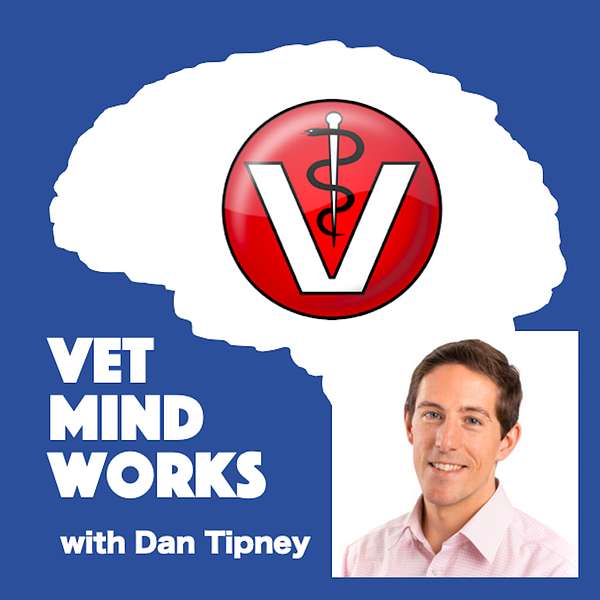
Vet Mind Works Podcast
This podcast is for veterinary professionals who are looking for better ways of working and living. We discuss mind-sets, mind skills, behaviours and habits, which support sustainable performance and wellbeing in a challenging profession, and allow us to develop our own 'best veterinary self'. Podcast hosts Petra Agthe and Alison Collings (two vets with a long-standing interest in psychology and related disciplines) interview interesting guests, ranging from veterinary colleagues to psychologists, who share their knowledge, experiences and insights on specific subjects. Occasionally, we also schedule a 'rest and digest' episode in which we discuss and reflect on previous topics. This is a podcast for the whole veterinary community and we encourage listeners to provide feedback and enter the discussion! You can do this by sending us an email to vetmindworks@gmail.com. We are happily funding this podcast ourselves to keep it independent.
Vet Mind Works Podcast
7. Physiological Needs - with Dan Tipney
Let’s face it: we are often better at looking after others than we are looking after ourselves. But why is it so difficult to put our own proverbial oxygen mask on even when it comes to our basic physiological needs, and why is it so important that we do? These are just some of the questions that we are exploring in the conversation between Dan Tipney and host Petra Agthe. Dan Tipney is an expert in human factors with experience in a variety of professions including sports, aviation, human healthcare and veterinary medicine, and he is a returning guest on our podcast. In this episode, Dan draws on personal experiences as well as scientific background knowledge to help us bridge the gap of knowing what we should do and actually doing it by discussing many different aspects including:
0:56 A thank you to our listeners
1:23 Introduction to this episode and introducing Dan
2:44 Bridging the gap between knowing and doing of self-care
5:37 What is so important about looking after our physiological needs
8:51 Interconnection between physiological needs, emotional state and rational thinking
11:54 Our brains explained: Threatening situations and roles of the amygdala and prefrontal cortex
17:32 Understanding our challenges and focusing on the things we can control
24:00 System vs individual factors of control
25:48 Petra and Dan give personal examples of avoiding the threat state by taking control
29:52 Additional things which can help us to close the gap between knowing and doing: moving from immediate returns to long-term rewards, changing behaviours by making use of triggers, and preplanning
37:28 Overcoming barriers to self-care by seeing caring for ourselves as caring for others
41:57 About time pressures and a balanced approach to resilience
44:58 Dan's favourite resources on the topic of physiological needs
46:23 Where to find Dan and Conclusions
You may also be interested in:
Vet Mind Works Podcast Episode 4: Performance and Wellbeing - with Dan Tipney
Dan's favourite resources on this topic:
Wellbeing resources from Guys and St Thomas' Hospital: https://www.guysandstthomaseducation.com/projectsleep-looking-after-your-wellbeing/
HALT campaign resources from Vetled: https://www.vetled.co.uk/halt
Why we Sleep by Matthew Walker: https://www.penguin.co.uk/books/295665/why-we-sleep-by-walker-matthew/9780141983769
Where to find Dan Tipney and VetLed:
https://www.vetled.co.uk/
Veterinary Human Factors Conference: https://www.v
This podcast is in partnership with the Veterinary Information Network (VIN). More about VIN here.
We value your feedback! Please email us your thoughts, ideas and suggestions to vetmindworks@gmail.com or follow us on LinkedIn and Facebook
Want to find out more about our hosts ? Follow on LinkedIn
https://www.linkedin.com/in/petra-agthe-562bb65b
https://www.linkedin.com/in/clive-elwood-b7aba216/
Credits:
Music- Deep Ambience by Coma-Media, Pixabay; Images for Artwork- OpenClipart-Vectors, Pixabay

